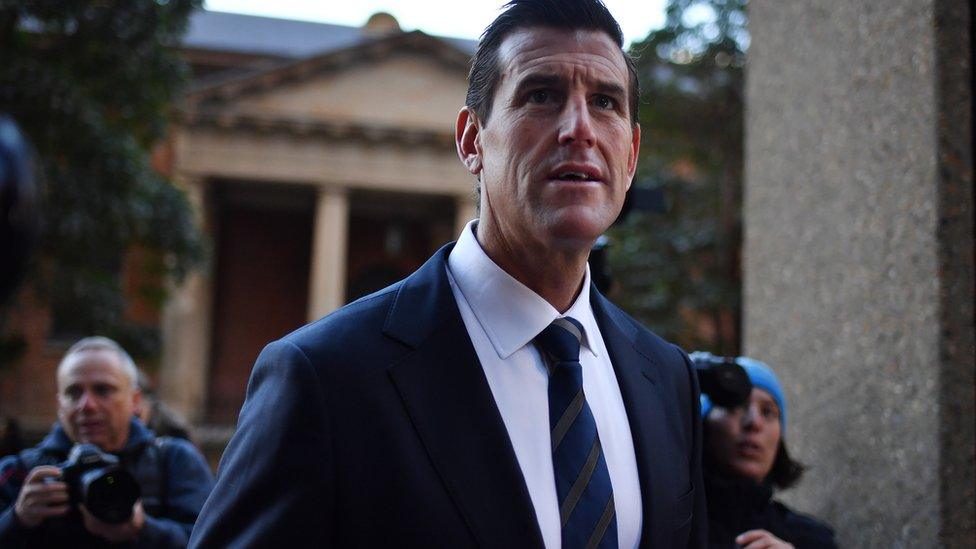Ben Roberts-Smith: Top soldier won't apologise for alleged war crimes
- Published

Australia's most-decorated living soldier has found his reputation tainted by allegation of war crimes.
Ben Roberts-Smith is proud of his actions in Afghanistan, the former Australian soldier said in his first comments since a judge ruled claims he committed war crimes were true.
A landmark defamation case this month found Mr Roberts-Smith was responsible for the murders of four Afghans.
The Victoria Cross recipient says he is innocent and will consider an appeal.
"I'm devastated... It's a terrible outcome and it's the incorrect outcome," he said on Wednesday.
Speaking to reporters from Nine as he returned to Australia for the first time since the judgement was delivered, Mr Roberts-Smith also said he would not apologise to those affected by his alleged crimes.
"We haven't done anything wrong, so we won't be making any apologies," he said.
Mr Roberts-Smith sued three Australian newspapers over a series of articles alleging he had carried out unlawful killings and bullied fellow soldiers while deployed in Afghanistan between 2009-2012.
But Federal Court Judge Anthony Besanko threw out the former special forces corporal's case against The Age, The Sydney Morning Herald, and The Canberra Times, ruling it was "substantially true" that Mr Roberts-Smith had murdered unarmed Afghan prisoners and civilians, and bullied peers.
The 44-year-old, who remains Australia's most-decorated living soldier, was not present for the civil court ruling, having spent the days leading up to it on the Indonesian resort island of Bali.
Mr Roberts-Smith, who left the defence force in 2013, has not been charged over any of the claims in a criminal court, where there is a higher burden of proof.
None of the evidence presented in the civil defamation case against Mr Roberts-Smith can be used in any criminal proceedings, meaning investigators must gather their own independently.
This week it was confirmed that the Office of the Special Investigator (OSI) - which is responsible for addressing criminal matters related to the Australian Defence Force in Afghanistan - would work alongside Australian Federal Police (AFP) to examine three alleged murders local media say involve the former soldier.
The killings allegedly took place at a compound codenamed Whiskey 108 and in the southern Afghan village of Darwan.
The OSI was set up following a landmark inquiry in 2020, known as the Brereton Inquiry, which found "credible evidence" that Australia's special forces unlawfully killed 39 people in Afghanistan.
There are currently 40 matters that are being jointly investigated by the OSI and the AFP.
Earlier this year former SAS soldier Oliver Schulz became the first Australian defence force member to ever be charged by police with the war crime of murder.
Related topics
- Published2 June 2023
- Published30 May 2023